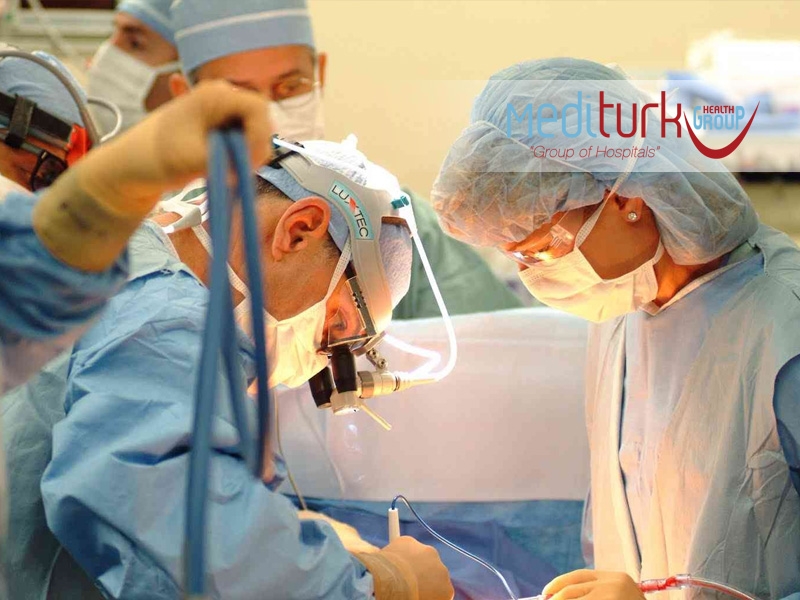- Executive Healthcheck
- ENT
- Chronic Diseases
- Alternative Medicine
- Cosmetic/Plastic Surgery
- Dentistry
- Detox
- Addiction Treatment
- Anti Aging
- Ayurveda
- Cancer Treatment
- Eye/Lasik Care
- Fertility Treatment
- Gynecology Treatment
- Hair Transplantation
- Heart Care/Surgery
- Infertility / IVF
- Laparoscopic Surgery
- Laser Surgery
- Medical Spa Treatment
- Neurology
- Obesity/Bariatric Surgery
- Organ Transplant
- Orthopedic/Knee Surgery
- Pediatric Treatment
- Rehabilitation
- Robotic Surgery
- Skin Care
- Spine Care/Surgery
- Sports Medicine
- Stem Cell Therapy
- Urology
- Vascular Surgery
- Yoga/Meditation
Vascular Surgery

Vascular Treatments and Surgery Overview
Vascular treatments and surgery are basically defined as any type of surgery or treatment or procedure that has something to do with the body's blood vessels. These blood vessels can range from those found in the heart, to the brain, to varicose veins found on the back of a leg. A variety of vascular treatments are available today, and include but are not limited to:
Endovascular therapy - a form of vascular disease treatment that is performed from inside a blood vessel. Also known as angioplasty, this technique has been utilized for several decades, although newer technologies offer enhanced benefits.
Phlebectomy - is also known as veins stripping or vein ligation. This type of surgery is often performed on individuals with severe varicose vein formation. Another form of phlebectomy is called Ambulatory Phlebectomy, designed for those diagnosed with superficial varicose veins.
Renal artery angioplasty and stenting - stenting is a process of placing a mesh-type support inside weakened or damaged walls of a blood vessel to maintain blood flow and circulation. Stents are often utilized in coronary bypass or angioplasty procedures, as well as those of the renal artery system.
Carotid endarterectomy - a procedure in which a vascular surgeon removes the inside or inner lining of the carotid artery after it's become thick and or damaged due to conditions like atherosclerosis. This type of procedure is often performed as a prevention against heart attack or stroke in individuals with large amounts of plaque buildup in the internal or external carotid artery.
Varicose vein ablation - considered a minimally invasive treatment that utilizes laser energy to cauterize or seal enlarged veins in the legs, which most people know as varicose veins.
Understanding the basics of the most common types of vascular treatments and surgeries will help consumers make informed and educated decisions regarding their medical care. Vascular medicine is a large field that employs a wide range of expertise, experience, and training.
Who Benefits From Vascular Treatments and Surgery?
Vascular treatments are often recommended to aid individuals diagnosed with vascular or blood vessel disorders; from varicose veins to peripheral artery disease to aneurysms. Coronary artery disease is commonly treated through some type of vascular treatment.
Individuals diagnosed with any disorder of a blood vessel, a blood pathway, or the condition of the vessel itself can benefit from a number either vascular treatment or surgery. The type of treatment or surgery will be determined by the specific condition, the overall health and age of the individual, as well as technologies to analyze, diagnose and offer treatments for such conditions.
Common Vascular Surgery Procedures
Some of the most common vascular surgery procedures are designed to open blocked or narrowed blood vessels. Some of the most common include:
Percutaneous Transluminal Angioplasty (PTA)
Leg bypass surgery - commonly recommended for those diagnosed with severe or expensive Peripheral Artery Disease (PAD)
Balloon angioplasty - a narrow tube is inserted into a groin artery. This tube is fitted with a wire and a deflated balloon. The balloon is guided to the narrowed or blocked portion of an artery and then inflated, thereby enlarging the artery.
Other forms of treatments and procedures for circulation or treatment of varicose veins may include compression stockings, or a process called intermittent pneumatic compression, which helps to treat conditions like edema and leg ulcers.
Who Performs Vascular Treatments and Surgeries?
A vascular surgeon is a specialist in the treatment of diseases and injuries to the arteries and veins in the body. Vascular surgeons around the world typically train four to eight years post- internship in this field. Vascular surgeons often work in close conjunction with radiology clinics and endovascular specialists and are experienced in procedures like angioplasty and stenting.
Training and certification in vascular surgery differ by country, but professionals should belong to standard bodies of organizations or professional organizations such as the American College of Surgeons, the Vascular Society of Great Britain and Ireland, or the Australian and New Zealand Society of Vascular Surgery.

